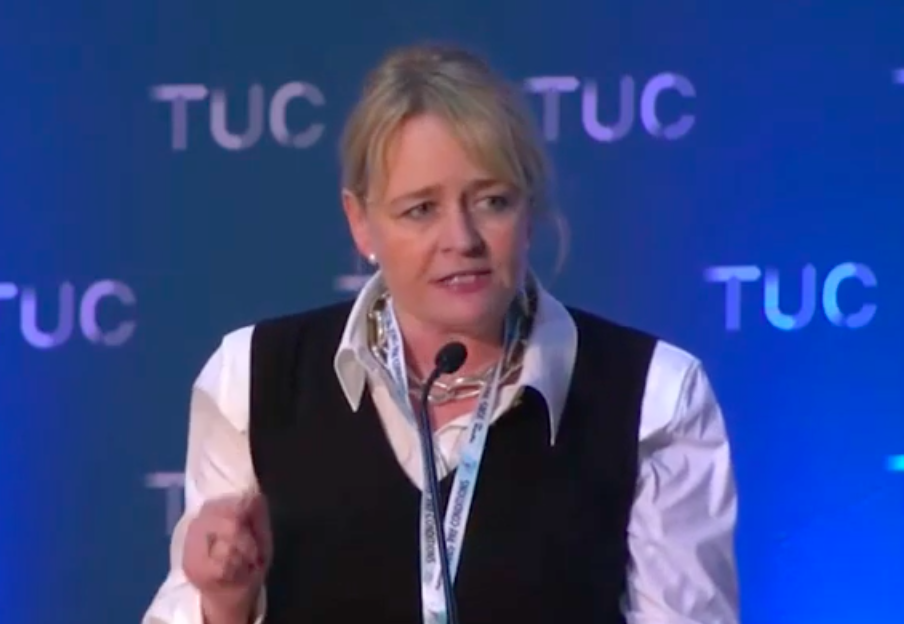"Real solidarity to push this back may take us outside the law”

Hundreds of trade unionists met for a ‘once in a generation’ meeting held by the Trades Union Congress (TUC) where they committed to a coordinated campaign to directly resist the government’s anti-strikes law.
It marked the first special congress called by the TUC in over 40 years, with the last in 1982 over Margaret Thatcher’s anti-union legislation.
Now the UK is left with some of the harshest trade union laws in Europe, with the Tory’s new Minimum Service Levels Act making it even more restrictive as striking workers can be forced to attend work or face the sack for not meeting minimum service levels.
Among the commitments made at the meeting on Saturday, unions agreed they will collectively refuse to tell their members to cross the picket lines, defying the demands of the legislation which has now passed through Parliament.
Sharon Graham, leader of the UK’s largest union Unite, said the Bill puts this government “at war with workers”, as she laid out how unions may have to act outside of the law to defy the legislation.
“One of us in this room will be first, they will be tested, we must act together,” stressed Graham. “We have to face facts, real solidarity to push this back may take us outside the law.”
“We must not allow them to force workers across their own picket lines, to break their own strikes, to defeat their own resolve.”
The meeting marked a significant start of a coordinated movement between trade unions to support each other and act in direct defiance to the new bill.
Union leaders including the Fire Brigade Union’s, Matt Wrack, and RMT’s Mick Lynch said workers could no longer rely on politicians. “Workers must defend themselves” said Wrack, as Lynch emphasised the only way to win was through solidarity.
One in five workers in Britain are at risk of losing their right to strike, while the TUC warned the government could use the bill as a ‘Trojan horse’ to push through further anti-union measures.
Sectors affected include health services; fire and rescue services; education services; transport services; decommissioning of nuclear installations and management of radioactive waste and spent fuel; and border security.
Even the government has admitted that the new law will worsen industrial disputes, with a government impact assessment into minimum service levels in the rail industry finding it would threaten safety and lead to more disputes.
This was backed up by a group of mayors and council leaders including Andy Burnham and Sadiq Khan, who joined together to blast the bill as they vowed to “explore every possible option” to avoid issuing work notices. The group of leaders said they would work with trade unions and employers to stop the legislation being used in their areas.
The special congress committed all unions to work together to adopt different tactical approaches of non-cooperation and non-compliance and support any worker who is subject to a work notice.
Trade unions wanted to send a clear message to politicians from all parties, that they will not stop fighting until the legislation is repealed.
Hannah Davenport is news reporter at Left Foot Forward, focusing on trade unions and environmental issues
To reach hundreds of thousands of new readers we need to grow our donor base substantially.
That's why in 2024, we are seeking to generate 150 additional regular donors to support Left Foot Forward's work.
We still need another 117 people to donate to hit the target. You can help. Donate today.



